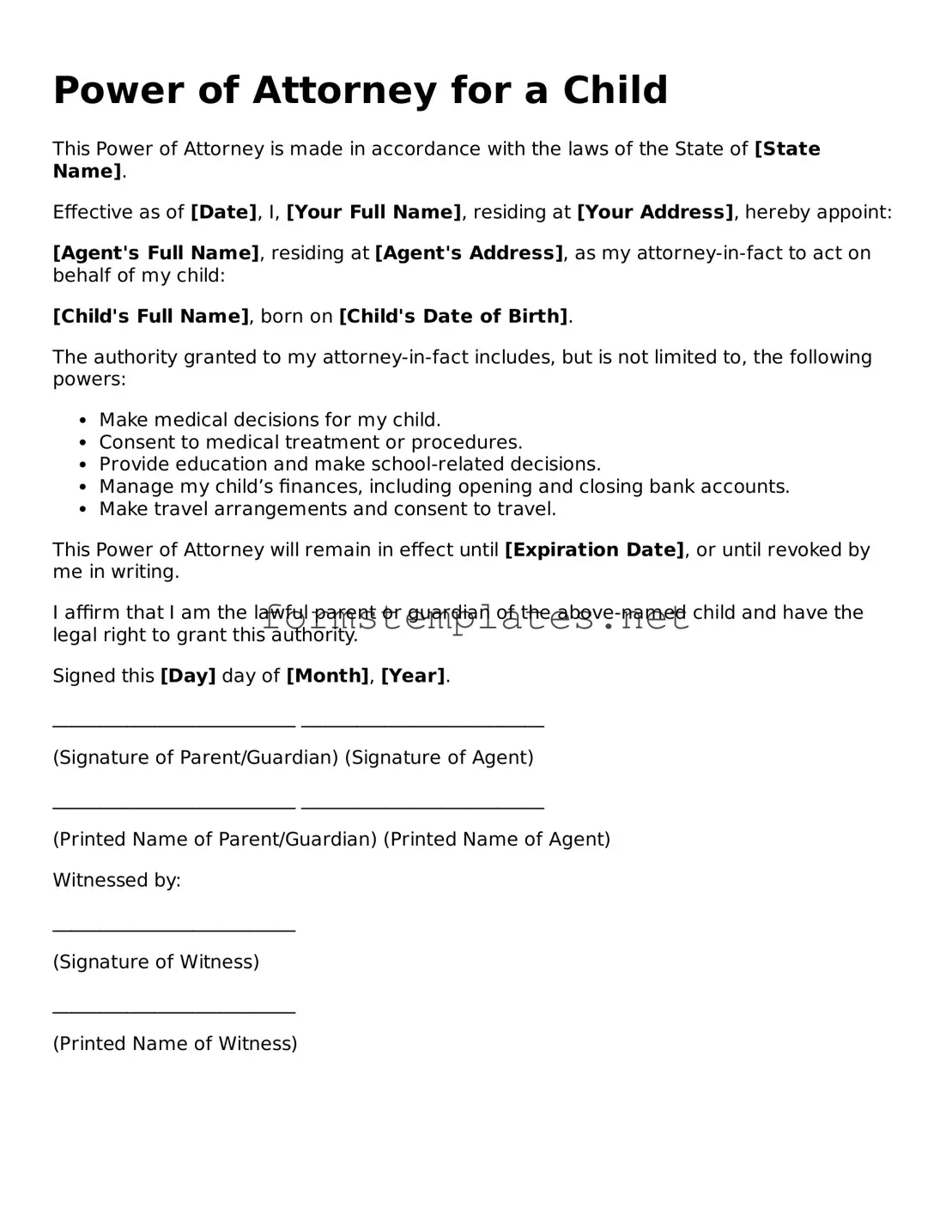Attorney-Verified Power of Attorney for a Child Form
The Power of Attorney for a Child form is a legal document that allows a parent or guardian to grant another adult the authority to make decisions on behalf of a child. This arrangement can be useful in various situations, such as when a parent is temporarily unavailable or when a child needs care during an extended absence. Understanding the implications and uses of this form is essential for ensuring the child's well-being and legal protection.
Open Editor Now

Attorney-Verified Power of Attorney for a Child Form
Open Editor Now

Open Editor Now
or
⇓ PDF Form
Your form still needs attention
Finalize Power of Attorney for a Child online — simple edits, saving, and download.